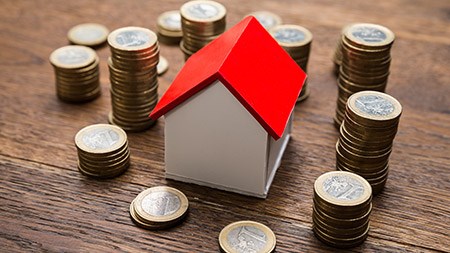The last time the Rand dramatically dropped against the dollar in 2001 and 2008 the South African Reserve Bank increased interest rates and although experts disagree on the percentage of the hike that will most probably be announced at its next meeting, it's fairly certain that South Africans will be paying more on their bonds. However, at this stage, there's no reason to raise a red flag.
We posed the question ‘What effect, in your opinion, will the rand’s dramatic fall against the dollar have on the property market’ to a number of property experts and there seems to be consensus that although sectors of the market may be affected, for many, it will be business as usual.
Andrew Golding, CEO of Pam Golding Properties:
“In the short term I think the effect will be minimal because generally speaking the property market doesn’t react immediately to these kind of external influences. Having said this there seems to be little doubt that in the longer term, the recent rand weakness will further erode household disposable income – both by fueling the rising trend in prices (limiting any benefit South Africa would otherwise feel from the slump in global oil prices) but also by placing greater pressure on the Reserve Bank to raise interest rates. The Bank is particularly concerned about the deterioration in inflation expectations (which is likely to fuel retail pricing and wage negotiations etc) and will be under pressure to reinforce perceptions that it will take the necessary steps to contain inflation even though the economy is weak.”
Adrian Goslett, CEO of Re/Max Southern Africa:
“It is more the sentiment of consumers that will affect the market. The fall of the rand will have a greater impact on consumerism with our country more slanted towards import. While a weaker rand makes imported items and overseas travel more expensive for South African consumers, the current exchange rate will be very attractive to foreign investors, provided of course that foreign sentiment towards the country remains positive. Property within South Africa is becoming more and more affordable for buyers with currencies like dollars or pounds. This could mean that we may see higher numbers of foreign investors purchasing homes in 2016, bringing both capital and skills into the country. That said, the allure of the weaker rand could be underpinned by other economic concerns that foreigners may have about South Africa. There will only be an increase in foreign property investment if buyers perceive the country to be a feasible investment option. Foreigners who buy property in South Africa will do so based on the fact that they have fallen in love with the country and intend to use their asset on a regular basis, rather than purely basing their decision the fact that the property is relatively affordable. I doubt that the fall in the rand will have any drastic effect on homes prices.”
Samuel Seeff, Chairman of Seeff Properties:
“it is too early to predict gloom and doom for the property market and we have seen very little effect so far, i.e. the market was quite active over the December period - in fact Seeff had a record month. Certainly, the economy and property market is in for a bumpy year and while it is too early to tell whether the market will take a significant knock from the poor interest rate climate, rising food and utility costs and other economic headwinds, we believe that so far the market is, contrary to gloom and doom predictions coming from some market commentators showed very strong resilience.
“Having said this, affordability will certainly be an issue for the market this year. It is almost certain that an interest rate hike is coming next week, potentially a half percent, but it could even be as much as one full percentage hike on the repo rate - this will most certainly affect consumers as the knock on effect will reverberate through the economy and property market, housing bonds will be more expense and faced with rising costs, fewer people will be able to buy houses, especially first time buyers will feel the pinch. Existing home owners too will feel the pinch as aside from basic household costs such as food, utilities such as electricity will increase significantly this year.”
Myles Wakefield, CEO of Wakefields Real Estate:
“It’s all about the impact on inflation, but in South Africa now, the weak rand has had a relatively muted effect on inflation because of the very low oil price. It’s worth bearing in mind that, simplistic as it may sound, property is priced in rands, so even though global events impact our economy, we are still paying in rands. So, in essence – barring any unexpected shock - our property market shouldn’t be much affected.”
Simon Bray, CEO of Private Property:
“At the moment we’re not seeing any noticeable effect on our website. In fact, we’re seeing a large year on year increase in visitors to our site this month so there is still a lot of interest in the property market. However, the weak rand will affect the market to some extent this year. Rising interest rates together with increases in other household expenses will affect affordability. There may be fewer buyers in the market, particularly first time buyers who are most susceptible to affordability pressures. These first time buyers may put off buying and rent instead which provides an upside for landlords. Buyers that are determined to own a home might have to downsize their expectations and opt for a smaller home with lower running costs instead. Existing homeowners will also feel the pinch and may be forced to sell, although for now we’re not seeing evidence of this in any significant numbers.”




